Menu Apply
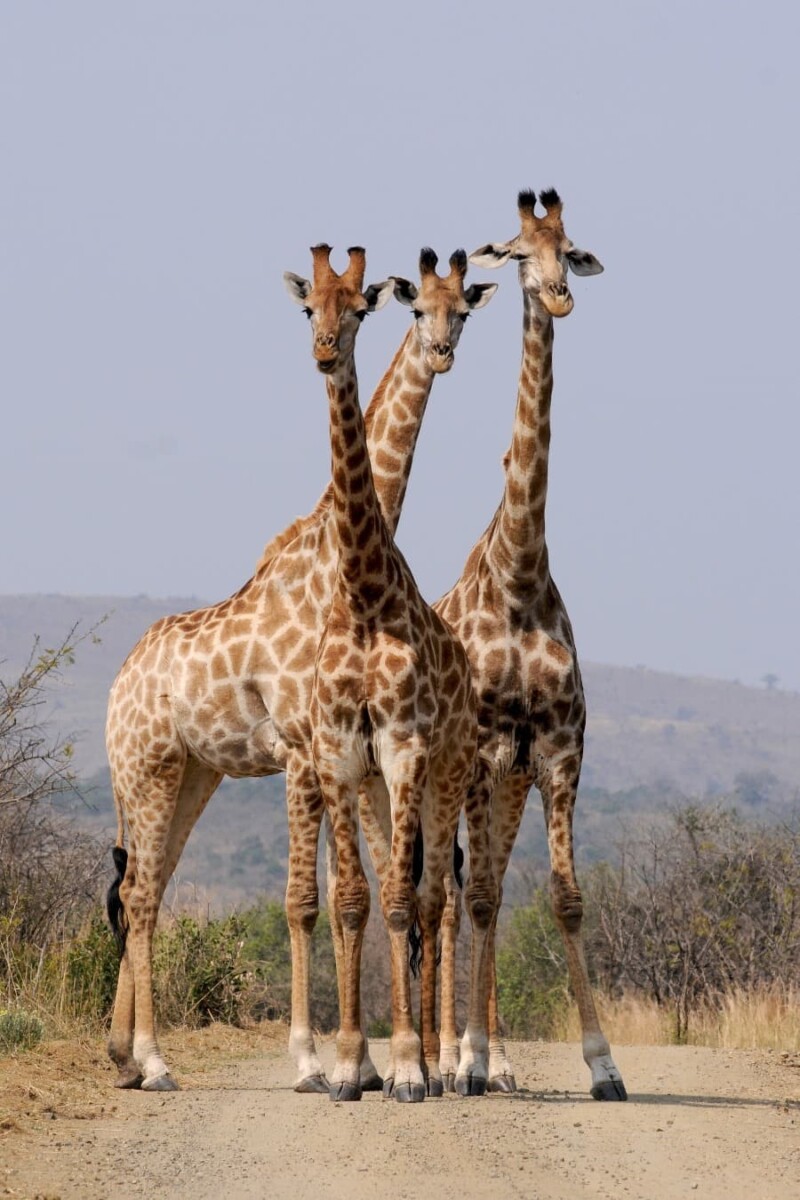
The official name of the country is the Republic of South Africa. In terms of territorial area, it covers 1,219,090 square kilometers divided into nine provinces. It borders Namibia, Botswana, and Zimbabwe to the north; Mozambique and Eswatini to the east; the Indian Ocean to the south, and the Atlantic Ocean to the west.
South Africa does not have a single culture but rather a diversity of cultures that have enriched South African music, art, and cuisine.
Regarding racial diversity, the country is very varied. In the early 20th century, 60% of the population was Black, 30% White, and the rest mostly of mixed race or South Asian descent. The predominant religion is Christianity, with 55% of the population being Protestant and 9% Catholic. The rest of the inhabitants follow Hinduism, Islam, or other faiths.
In the highlands and the south, the climate is temperate. In the northwest, the climate is subtropical, and in the western part of the country, it is semi-arid. In the southwest of South Africa, the climate is similar to the Mediterranean, with rainy and humid winters and hot and dry summers, always in the opposite season compared to Europe.

South Africa is in the South Africa Standard Time (SAST) zone, which is UTC+2.
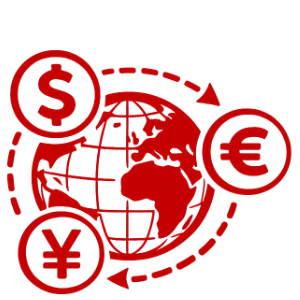
The official currency of South Africa is the Rand (ZAR).
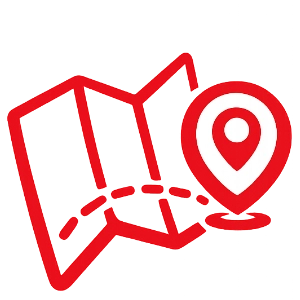
The education, sports, and youth empowerment projects are located in Cape Town, the conservation project is in Paterson, and the diving project is in the Sodwana Bay National Park.
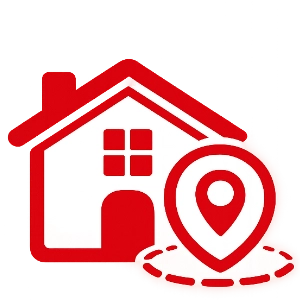
The volunteer stay begins when the volunteer arrives at the destination and is picked up.

Meals will depend on the project; please check the specific details in the description of each one under 'accommodation and meals.'

Volunteers must arrive at the airport on the designated day according to the program.
The education, sports, and youth empowerment projects are located in Cape Town, the conservation project is in Paterson, and the scuba diving project is in the Sodwana Bay National Park.
South Africa is a country characterized primarily by its rich gastronomy, influenced by various ethnic groups (such as the Khoisan, Xhosa, and Sotho), European influences (mainly British, as a result of the colonial era), and by the slaves and servants who arrived from Asia in the early 20th century. South African cuisine is vibrant and completely irresistible.
Volunteers must arrive in South Africa on the following days and times:
One of the major attractions is Kruger National Park, the largest in the country. The canyons in this park have been designated as a Biosphere Reserve by UNESCO. The main draw is the presence of the famous “big five,” which are the lion, leopard, elephant, buffalo, and rhinoceros.
Famous capes can also be found, such as the Cape of Good Hope, popularly known as the “Cape of Storms,” which is literally situated at the end of the world.
Cape Town stands out for its incredible beauty, nestled between Table Mountain and paradisiacal white sandy beaches.
Participants in this program will engage with an organization that offers a variety of educational and social welfare programs in Nyanga, Cape Town. Founded in response to the HIV epidemic and various social challenges, this project is dedicated to improving the lives of the local community through diverse programs, with a special focus on women and children.
Some of the programs you can participate in are:
This program allows volunteers with different skills and knowledge to collaborate in various ways for the development of this community, supporting the local leaders of these projects.
Minimum duration: Two weeks.
Program start dates: Mid-January to November.
Public Holidays: January 1, March 21, March 29, April 1, April 27, May 1, June 16, June 17, August 9, September 24, December 16, December 25 and 26.
School Holidays:
Friday, December 15, 2023 – Wednesday, January 17, 2024
Thursday, March 21, 2024 – Tuesday, April 2, 2024
Saturday, June 15, 2024 – Monday, July 8, 2024
Friday, September 20, 2024 – Monday, September 30, 2024
Tuesday, December 12, 2024 – Sunday, January 14, 2025
Healing through Horses has been offering therapeutic riding and training for individuals with severe disabilities since 1973. All classes aim to promote social well-being and improve the quality of life and learning capabilities of participants through training, exercise, recreation, and rehabilitation. Participants receive riding lessons from qualified Riding for the Disabled (RDA) instructors, supported by a team of volunteers.
The project currently provides free riding lessons to approximately 180 children aged 7 and older, as well as adults with disabilities from 13 special needs schools in the Western Cape. The demand always exceeds supply, but over 9,500 children, families, caregivers, and nearby communities have benefited from the project.
Seventy-five percent of the riders come from previously disadvantaged backgrounds. All participants physically benefit from the numerous positive aspects of riding, including psychosocial benefits, self-esteem, and the opportunity to compete with their peers on equal terms.
There are two roles a participant can undertake:
Minimum duration: 3 weeks.
Holidays: January 1, March 21, March 29, April 1, April 27, May 1, June 16, June 17, August 9, September 24, December 16, December 25, and 26.
School Holidays:
Program opening dates: Mid-January to mid-December.
This project is perfect for sports and learning enthusiasts, who will collaborate with an organization with 22 years of history. It began as a rugby program for children from underprivileged areas and now offers rugby training to children from five primary schools in the Langa municipality in Cape Town. Rugby is a very popular sport in South Africa, and the national team is ranked number one in the world and won the World Championship in 2023.
The project also focuses on education, providing assistance in English, mathematics, computer skills, and homework support.
The main objective is to provide a center of excellence in Langa to address the challenges that children in this community face from an early age, creating opportunities and a safe space for children to learn, play, and grow.
NOTE: In the sports and education program, you will have scheduled activities both in the morning and afternoon. It is a program that requires commitment and dedication.
Minimum duration: Two weeks.
Program start dates: Mid-January to mid-December (it will not be open during school holidays from December to mid-January).
Public Holidays: January 1, March 21, March 29, April 1, April 27, May 1, June 16, June 17, August 9, September 24, December 16, December 25, and 26.
School Holidays:
There are generally four to six tasks per day, on a rotational system that ensures that everyone has the opportunity to experience all tasks.Typically, the workday begins at 08:00 and ends at 17:00.
The day’s tasks may include the following: Food preparation, tracking and monitoring of free-ranging cheetahs, wild meerkat research and observation, monitoring electric fences and enclosures, setting up camera “traps” for research purposes, Relocation/translocation of wildlife to mitigate human-animal conflict, contributing to habitat conservation including spekboom planting, community improvement (Vrederust school project), assisting and supporting a local agricultural school, agricultural work such as maintaining water supply, fixing fences, etc; learning field skills such as tracking and identifying animal and plant species. In short, learning to become a conservationist.
Minimum number of weeks allowed: 2 weeks
Vacations: 1 January, 21 March, 29 March, 1 April, 27 April, 1 May, 16 June, 17 June, 9 August, 24 September, 25 and 26 December.
Program opening dates: all year round.
This conservation project is the result of the collaboration of several farming families to form a private reserve, actively managed as a protected area. This effort allows the reintroduction of animals into their natural habitat, thus contributing to the conservation of the region’s natural heritage. The reserve is home to the “Big Five” (lions, leopards, rhinos, elephants and buffaloes), as well as an abundant variety of antelopes and other species such as giraffes, warthogs and cheetahs, offering unforgettable memories of African wildlife.
The project’s mission is to provide a safe and secure environment for wildlife while educating the local community about the importance of conservation. It collaborates with the local community through day centers and the Conservation Center.
Participants participate Monday through Friday (8 hours a day), having weekends off.Two days a week, you will spend your time completing community projects at the school or aftercare program, and the other three days you will work at the reserve.
Duties include:
In the Community: reading, teaching and playing with children, community maintenance and cleanup.
In the Reserve: Lion tracking, animal counting, road maintenance and invasive plant removal. In addition, they participate in talks on various conservation topics.
Minimum number of weeks allowed: Two weeks.
Program open: Year-round.
Holidays: January 1, March 21, March 29, March 29, April 1, April 27, May 1, June 16, June 17, August 9, September 24, December 16, December 25 and 26.
School vacations:
Friday, December 15, 2023 – Wednesday, January 17, 2024.
Thursday, 21 March 2024 – Tuesday, 2 April 2024
Saturday, June 15, 2024 – Monday, July 8, 2024
Friday, September 20, 2024 – Monday, September 30, 2024
Tuesday, December 12, 2024 – Sunday, January 14, 2025
The Ocean Conservation Project is part of a community of volunteers dedicated to marine conservation in South Africa. Like many conservation projects, this organization relies on the willingness of others to contribute their time and dedication to promote volunteerism and conservation ethics, which go hand in hand for a better future. Plettenberg Bay, which is home to some of the most diverse marine animals, including bottlenose dolphins, humpback dolphins, common dolphins, killer whales, humpback whales, southern right whales and great white sharks.
Monday to Friday, from 08:00 to 17:00 (on a Friday afternoon, you normally finish at 13:00), some days, you can be in the water from 06:00. Planned activities can change at any time, especially if the weather changes or if something exciting comes up, such as a marine mammal stranding.
The project involves a community and conservation approach. Many of the activities take place weekly, but some are more irregular. Depending on the length of your stay and your level of experience, the project may ask you to take on more responsibility and do more of the work and even train new volunteers.
Environmental activities (all boat trips are weather dependent):
– Opportunistic boat surveys with a whale watching company.
– Video monitoring of sharks and rays
– Searching for shark and ray ovipositors
– Response and necropsy of stranded marine mammals
Opportunistic boat-based surveys of Cape fur seals in Keurbooms estuary
– Seal population monitoring
– Seal-shark interaction monitoring
– Cliff-top monitoring of seals, sharks, whales, dolphins, tourist boats and fishermen
– Beach surveys and beach cleanups
– Aquarium maintenance, bait collection and fish capture
– Capture/processing/data entry.
Minimum weeks allowed: 2 weeks
Vacations: 1 January, 21 March, 29 March, 1 April, 27 April, 1 May, 16 June, 17 June, 9 August, 24 September, 25 and 26 December
Opening dates: mid-January to the end of November.
The Sodwana Bay Conservation and Diving Project offers a unique experience in a small rustic village on the east coast of South Africa. This project is located near the Isimangaliso Wetland Park, the first UNESCO World Heritage site in South Africa.
This project accepts both qualified and unqualified divers, offering diving courses during the first week for beginners and advanced courses for experienced divers. From Monday to Friday, volunteers head to the beach for morning dives. There, they take to the sea to dive some of the best reefs in the world.
During the week, participants conduct morning dives to collect photographic data on turtles, manta rays and other marine species. This data is entered into a database to contribute to marine research on endangered animals. After the dives and data entry, volunteers participate in informal marine conservation talks to learn more about the ocean and its biodiversity.
This project provides a unique opportunity to contribute to marine research and enjoy the natural beauty of Sodwana Bay.
Minimum weeks allowed: 2 weeks.
Program opening dates: January through November.
Holidays: January 1, March 21, March 29, March 29, April 1, April 27, May 1, June 16, June 17, August 9, September 24, December 16, December 25 and 26.
When the volunteers arrive at the airport, the local coordinator picks them up and accompanies them to the house where they will be accommodated and share the following days with the rest of the volunteers.
Upon arrival there is a welcome meeting with the local workers and coordinators, to give information about the area, about the rules and usual schedules, and to explain the programs that will be carried out.
Depending on the program chosen you stay in one location or another.
Education, youth empowerment, and sports programs: You will live in the Volunteer House. It is a private house in a residential area with single beds and double rooms. Volunteers stay in double rooms. There are 4 bathrooms to share, a common kitchen, a dining room, a living room with TV, and a garden with a pool. Bed linen is provided. Towels are not included. Meals during the volunteer’s stay in these projects are provided by the participants, which can be cooked in the accommodation’s kitchen, and there are supermarkets, restaurants, etc. around the house.
Conservation and Community Program: The lodge is in the village of Paterson, just 10 km from the reserve. It is a house near a local pub and basic stores and there are common areas such as living and dining rooms with Wi-Fi, plus a well-equipped kitchen and laundry facilities. Rooms are usually doubles, and there are bathrooms with hot water. The house includes amenities such as a swimming pool, outdoor seating with a barbecue and a fire pit. Meals are provided weekly with options for vegetarians and special dietary needs, although volunteers cook their own dinners.
Horse therapy program: You will live in the Volunteer House. It is a private house in a residential area in Cape Town. Volunteers stay in double rooms, but can opt for single rooms upon request. There are 4 bathrooms to share, a communal kitchen so you can prepare your own meals, a dining room, a lounge with TV and DVD player, as well as a garden with a swimming pool. Bed linen is provided. Towels are not provided.
Meals during the stay are the responsibility of the travelers, they can be cooked in the kitchen of the accommodation.
In the house there is a washing machine for your use.
Diving and Marine Conservation Program: Participants will stay in a house with three double rooms, a kitchen, a living room and a shared bathroom. There is a washing machine that volunteers can use free of charge. Bed linen is provided but towels are NOT included. The house is close to restaurants, bars and stores. As for meals, they are included in the cost and each week, volunteers will shop for the week. The weekly food budget covers basic food, which the volunteers will then prepare in the community kitchen.
African Wildlife Experience Program: In this program, volunteers live inside a working nature reserve. It is specifically located in Oudtshoorn. Accommodation is provided in a large, newly constructed tented camp with up to four people (of the same gender) sharing each tent. The rooms and tents are basic, but the single beds are comfortable and have bedding (comforters and pillows). Showers and toilets are en-suite and hot water is supplied by gas geysers. Power outlets for electrical appliances are available in each tent and in the common area.You also have access to Wi-Fi in the tented camp. Lunches and dinners are prepared by a staff member, assisted by volunteers. Breakfast is a self-catered meal, but ingredients are provided.
Community Children’s Project” program: The accommodation is located on a small 5 hectare farm in the midst of native forest and open grassland in The Crags and about 25 minutes from the main town of Plettenberg Bay. You will stay in fully equipped twin-bedded shared rooms with linen and towels provided. There are numerous bathrooms for common access and use. Volunteers have full use of the well-equipped kitchen and two terrace areas, with large fireplaces. This is where guests and hosts gather for social interaction and where dinners are served for all to enjoy. Three meals are provided daily. You will prepare your own breakfast and lunch.
The total cost of the volunteer program is divided into two parts: a registration fee of €210, which is required to reserve a spot in the program, and the program cost, which is paid later, at least one month before traveling to the destination.
African Wildlife Experience
Youth Community Program
Ocean Conservation Program
If your currency is not specified in the list, you can convert the costs here.
Education, Sports, and Youth Empowerment programs:
Conservation and Community Program:
Diving and Marine Conservation Program – Sodwana Bay
Equine Therapy Program
If your currency is not specified in the list, you can convert the costs here.
Visa, flights, travel insurance (mandatory), vaccinations, Transfer back to the airport from the program, other personal expenses.
| Address: | New York, United States |
| Address: | Avinguda Carrilet, 3, Edifici D, planta 2a, 08902 L’Hospitalet de Llobregat (Barcelona) |
| Phone: | +34 931 890 904 - Office- Barcelona |
| Email: | hello@cooperatingvolunteers.com |
| WhatsApp: | +34 671 94 28 89 |
Cooperating Volunteers, S.L. All rights reserved © 2014
Leave us your information and we will contact you within the next 24 hours
Our volunteers will be able to validate university credits with the aim of traveling in a more responsible and economical way.
What does volunteering focused on university practices involve?
At Cooperating Volunteers, we make agreements with different universities to validate university credits with the aim of traveling in a more responsible and economical way.
The specialties we work with are extensive: medical volunteering, nursing, education, social work, psychology, physiotherapy, engineering, architecture…
The practices can be carried out in our designated destinations for this purpose, as well as in Spain.
If you choose an international destination, it’s a unique way to live an unforgettable and enriching experience, as you will have the opportunity to continue your education in another country, with a completely different culture.
Stepping out of our comfort zone and being part of the various projects at the destination will allow us to grow both personally and professionally, creating a more extensive curriculum.
And we are fully convinced that this experience will accompany you throughout your life.
You will be able to visit hospitals, schools, centers, orphanages, and participate directly and actively in the daily lives of all those people at the destination, always accompanied by other professionals willing to collaborate hand in hand with you and guide you in daily tasks.
If your university is not part of the agreement with Cooperating Volunteers, you can contact cristina@cooperatingvolunteers.com so that we can get in touch and make this experience a reality.
Corporate volunteering consists of tailored programs for your company, designed to develop teamwork skills.
It is proven that teamwork directly impacts productivity.
Collective effort surpasses individual capabilities, promotes diversity of skills, stimulates creativity, and facilitates problem-solving in the face of various challenges.
Therefore, it not only maximizes efficiency but also enriches the work environment.
We conduct corporate volunteering programs that consist of customized programs for your company, designed to develop teamwork skills, improve performance, and foster unity among employees.
We tailor projects to the corporate identity and size of the company, and we can adjust them to any destination and time of the year.
The advantages of corporate volunteering include:
The future is aligned with a more responsible society, and participating in social projects positions our company among the list of revolutionary businesses that want to be part of the change.
If you resonate with this message, corporate volunteering is a unique experience both individually and collectively, and at Cooperating Volunteers, we accompany you throughout the process to make it a unique journey.
Quality time spent with family strengthens emotional bonds, promotes communication, and contributes to the emotional well-being of its members.
Spending quality time with family and being able to disconnect from our hectic routines is not only enriching but also necessary.
Sometimes we forget to communicate, connect, and dedicate time to each other. Each one of us lives focused on our jobs, schools… And it’s necessary to find the opportunity to pause and take care of ourselves.
Quality time spent with family strengthens emotional bonds, promotes communication, and contributes to the emotional well-being of its members. And of course, it creates lifelong positive memories.
At Cooperating Volunteers, we suggest moving away from those ‘more superficial’ trips (which can also be fantastic), but we invite you to live this experience to bring out our most empathetic and humanitarian side.
Family volunteering gives us the opportunity to be part of a positive impact, promoting values of solidarity and social responsibility.
There are many families who choose to experience these trips focused on cooperation and direct involvement with different communities around the world, where living conditions are very different and sometimes entirely precarious.
Projects are tailored to different ages, allowing us to work together.
An incredible way to fill our suitcase with memories, learning, and knowledge.
And although stepping out of our comfort zone often feels daunting, we assure you firsthand that it’s worth it.
At Cooperating Volunteers, we accompany you throughout the entire experience, from start to finish, to make it unforgettable.
At Cooperating Volunteers, we believe it’s never too late for anything, especially for volunteering and living a unique and unforgettable experience.
There are many people, increasingly so, who opt for responsible travel that involves social work.
Accustomed to organized and mostly touristic trips, at Cooperating Volunteers, we want to advocate for a more enriching experience, one that transforms us from within and allows us to be part of the change the world needs to see.
We can adapt both the destination and the duration of our projects to fit your needs.
It’s an opportunity full of emotions that allows us to significantly contribute to different communities and their evolution. And you can participate in different areas such as education, social support, or assistance in different centers.
Some of the benefits include:
Living this experience will undoubtedly be a before and after.
A volunteering initiative with leadership and impact through the educational action program.
When we talk about social volunteering, we refer to all those actions and activities carried out altruistically, selflessly, and with the aim of addressing multiple problems and needs of different communities, always focused on education and self-sufficiency.
Education is essential because it provides the tools and knowledge necessary for personal, social, and economic development.
Our goal is to create self-sufficient communities and provide opportunities for the future personal development of each member. The message is not to ‘give’, but to accompany in the process of training for self-managed provision.
At Cooperating Volunteers, many of our destinations and projects embrace this type of volunteering. Some of our projects include: community programs, education, women’s empowerment…
And although they are completely different from each other, they share a single objective: progress towards a society that can embrace us all in the same way.
If you are someone who is restless, who needs to see a change in the future, volunteering is an experience tailor-made for you.

